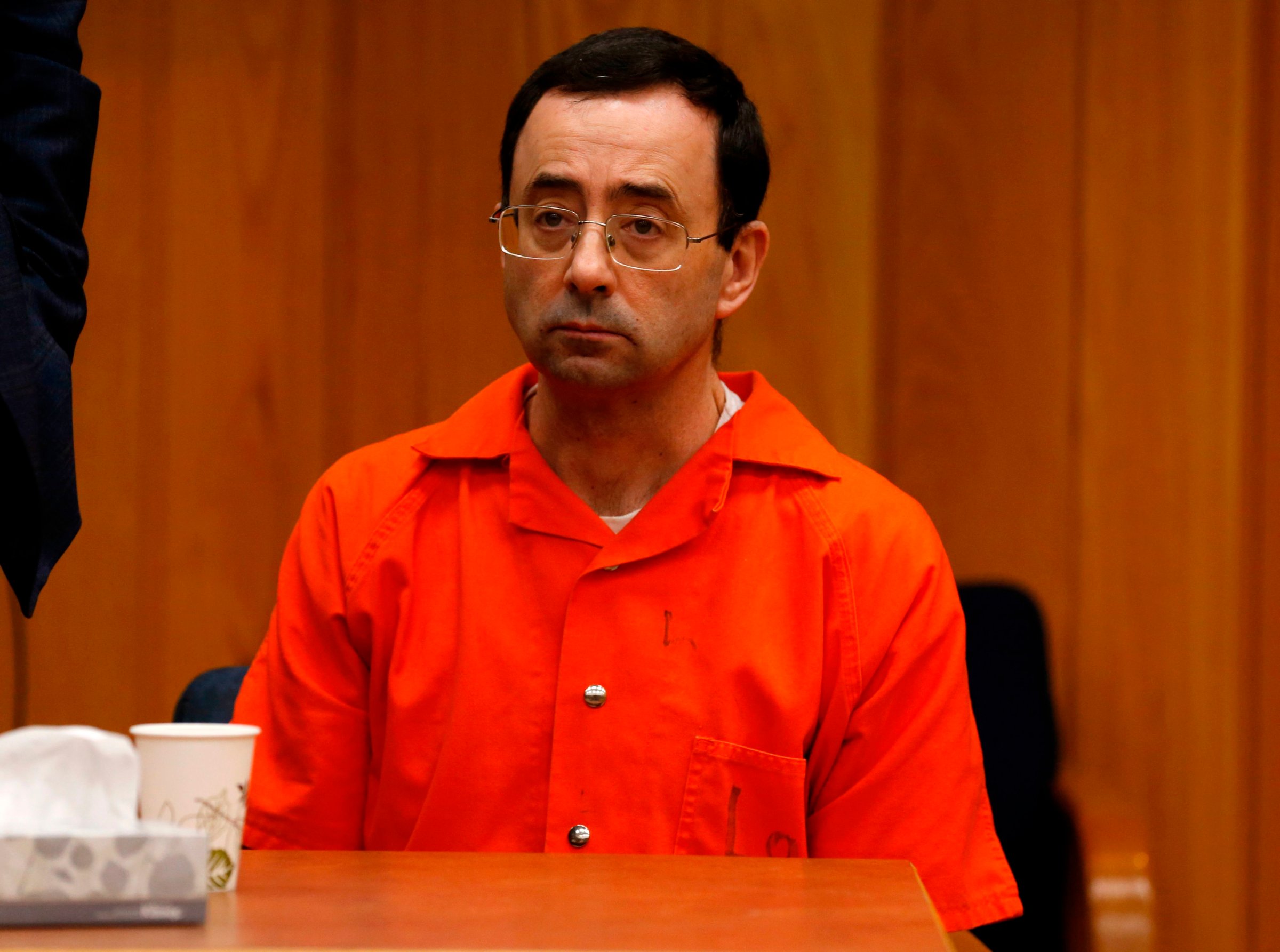
Michigan State University announced a $500 million settlement with the victims of gymnastics team doctor Larry Nassar this week. For Lindsey Lemke, an MSU student who was abused by Nassar, that’s not enough.
“That is a good start,” she says. “[MSU] thinks that’s enough. And it’s not enough. No amount of money can ever change what we had to go through.”
The settlement will go to more than 300 victims. It allows for $425 million to be paid to current claimants, and $75 million to future claimants who may come forward.
In January 2018, more than 100 gymnasts and athletes that Nassar had sexually abused, including members of the 2012 gold-medal winning U.S. national team, provided victim impact statements over several days at Nassar’s sentencing hearing. Lemke was one of them. And while she sees the settlement as a first step, she says MSU still needs to go further to redress wrongs when it comes to sexual abuse.
“Part of the issue I’m still struggling with is that they keep saying that they are working on changing the culture, and enforcing different policies but we really don’t know yet what those are. Especially for students at MSU — if someone said to me, ‘Where do I go to report sexual abuse, or who do I talk to,’ I still wouldn’t know what to tell you,” she says. “I would like to see the accountability go even farther.”
As part of the settlement, the 322 plaintiffs agreed to drop law suits against MSU and against former and current employees at the university, including board members, says Jamie White, an attorney for one of the plaintiff groups. He said in such settlements, a third party arbitrator typically uses a set of criteria, including the merits of each individual’s legal claim, the amount of damages, including financial losses, suffered, and makes allocation recommendations for each plaintiff.
While MSU may hope that the settlement closes the door on the Nassar scandal, Lemke says the survivors of his sexual abuse will continue fighting. There are more than 30 bills in front of the Michigan state legislature that propose extending the statute of limitations for reporting sexual abuse, as well as removing government immunity protections for states if state employees engage in sexual abuse. Nassar is currently serving an up to 175 year prison sentence.
One provision of the settlement requires anyone who receives a payout from MSU to stop advocating for two of the bills before the legislature, attorney Vince Finaldi, who represents about 175 victims, told the Detroit News.
The news of the settlement was followed by even more turmoil at USA Gymnastics, the beleaguered national governing body for gymnastics.
On Friday, USA Gymnastics (USAG) announced that Rhonda Faehn, head of the women’s program, “is no longer with USA Gymnastics.” The organization only added that “This is a personnel matter that we will not discuss in detail.”
Faehn is reportedly among the first people at USAG to be informed that Nassar, was sexually abusing gymnasts. Olympian Aly Raisman and national team member Maggie Nichols were overheard at a training camp in the summer of 2015 discussing Nassar’s unusually intrusive pelvic procedures, which he claimed was part of his treatment of the gymnasts. The coach who overheard them reported the discussion to Faehn, who reported it to then USAG president Steve Penny.
Penny did not report Nassar to the police, but instead hired an investigator who questioned Raisman, Nichols and Olympian McKayla Maroney. It was not until six weeks after the coach’s initial complaint that Penny reported Nassar to the FBI.
Kerry Perry, who succeeded Penny as USAG president when he stepped down in March 2017, has been called to testify before Congress next week to explain USAG’s handling of sexual abuse complaints, including many involving Nassar, which gymnasts said they reported before 2015.
More Must-Reads from TIME
- Donald Trump Is TIME's 2024 Person of the Year
- Why We Chose Trump as Person of the Year
- Is Intermittent Fasting Good or Bad for You?
- The 100 Must-Read Books of 2024
- The 20 Best Christmas TV Episodes
- Column: If Optimism Feels Ridiculous Now, Try Hope
- The Future of Climate Action Is Trade Policy
- Merle Bombardieri Is Helping People Make the Baby Decision
Contact us at letters@time.com